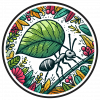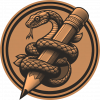Stopping wildlife crime requires access to information about poachers, traders, exporters, trade routes and financial transactions. But when that information is scattered between various actors, reacting quickly and making important connections when time is of the essence can be difficult. Prize Winner Mars Omega LLP is turning information into intelligence through its wildlife crime intelligence software, the JIGZAW information collaboration system project. The project helps capture, aggregate, evaluate, link, and display information from a variety of different sources.
Over the past six years, Mars Omega LLP has shared the JIGZAW tool with Kenya’s Northern Rangelands Trust, a group of 27 community conservancies in the country. “It’s helped them in a variety of ways in the protection of wildlife and the identification of wildlife crime,” notes Mars Omega’s Chris Holtom, who was formerly Director of the British Army’s Intelligence Corps. The secure, easy-to-use JIGZAW system allows frontline personnel to securely share wildlife crime intelligence on tablets or mobile phones, improving cooperation among rangers and enforcement staff. The software turns information into actionable, precise intelligence, assisting the user in making decisions about needed actions. JIGZAW assists users in effectively planning and developing a strategy or campaign to address the wildlife crime issues they are facing. “It’s giving people an understanding of what’s going on, it’s giving useful, practical intelligence that can be acted on, and it’s giving them an environment in which to plan strategically for the long-term,” explains Holtom.
Now that JIGZAW has been tested in Kenyan conservancies, Mars Omega believes that it can be applied to similar situations around the world. “We want to make it incredibly cheap so there’s instant value to people who are already working very hard, with very limited resources, in sometimes extremely difficult and dangerous circumstances,” says Holtom.
All of the Wildlife Crime Tech Challenge Prize Winners, including Mars Omega, are looking for partners, organizations, individuals, and funding agencies that can help them scale their solutions. If you would like more information, please get in touch at [email protected].
Anthony Franks and Chris Holtom, Mars Omega founders, are a part of the WILDLABS.NET community and are hosting a conversation about the project over in our Wildlife Crime Group. Join our community to connect with them directly and contribute to the discussion about the JIGZAW tool.





Add the first post in this thread.